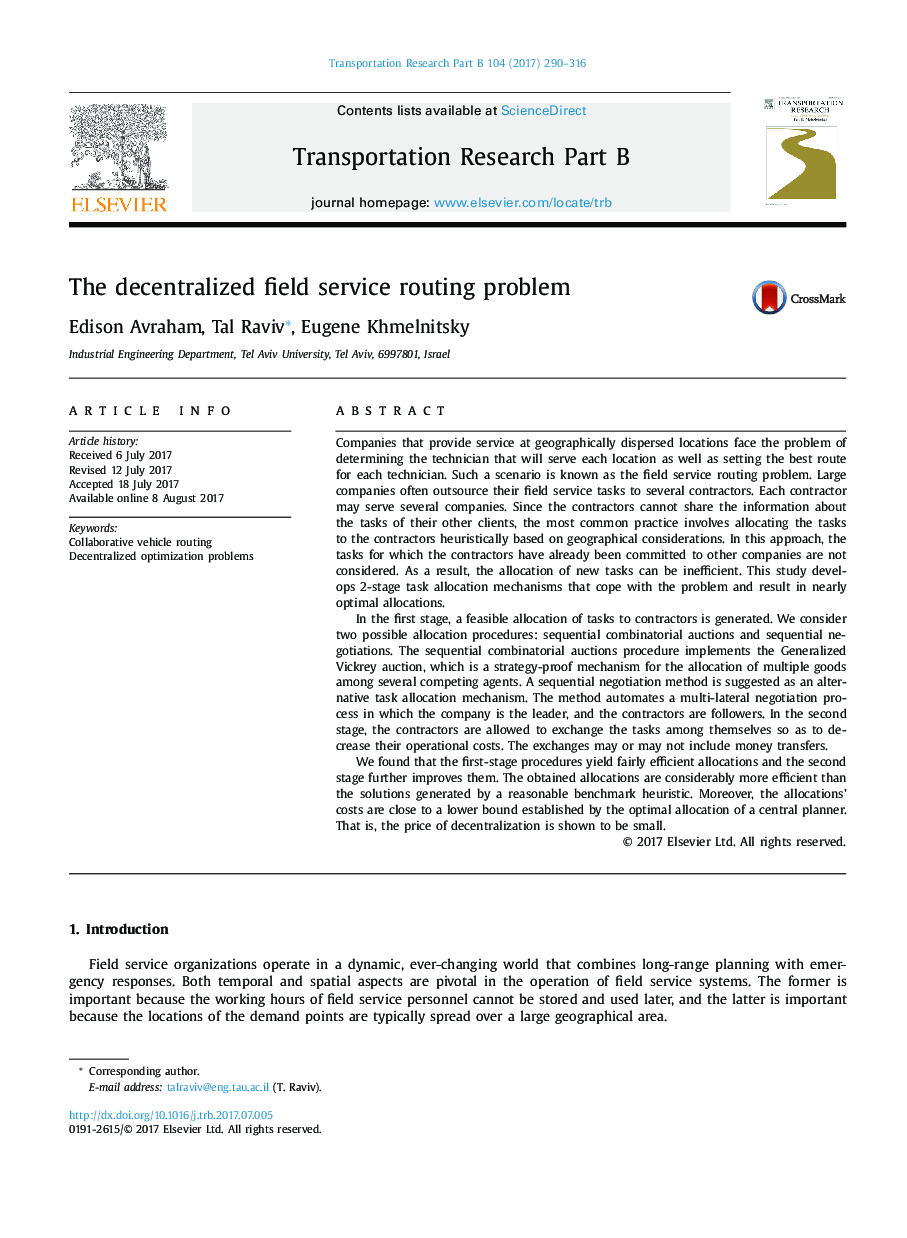| کد مقاله | کد نشریه | سال انتشار | مقاله انگلیسی | نسخه تمام متن |
|---|---|---|---|---|
| 5126963 | 1488942 | 2017 | 27 صفحه PDF | دانلود رایگان |
- Decentralized allocation and routing of service tasks is studied.
- A new two-step mechanism for allocating service tasks to contractors is introduced.
- The resulted allocation is nearly optimal.
- The decentralized mechanism does not require sharing private information.
Companies that provide service at geographically dispersed locations face the problem of determining the technician that will serve each location as well as setting the best route for each technician. Such a scenario is known as the field service routing problem. Large companies often outsource their field service tasks to several contractors. Each contractor may serve several companies. Since the contractors cannot share the information about the tasks of their other clients, the most common practice involves allocating the tasks to the contractors heuristically based on geographical considerations. In this approach, the tasks for which the contractors have already been committed to other companies are not considered. As a result, the allocation of new tasks can be inefficient. This study develops 2-stage task allocation mechanisms that cope with the problem and result in nearly optimal allocations.In the first stage, a feasible allocation of tasks to contractors is generated. We consider two possible allocation procedures: sequential combinatorial auctions and sequential negotiations. The sequential combinatorial auctions procedure implements the Generalized Vickrey auction, which is a strategy-proof mechanism for the allocation of multiple goods among several competing agents. A sequential negotiation method is suggested as an alternative task allocation mechanism. The method automates a multi-lateral negotiation process in which the company is the leader, and the contractors are followers. In the second stage, the contractors are allowed to exchange the tasks among themselves so as to decrease their operational costs. The exchanges may or may not include money transfers.We found that the first-stage procedures yield fairly efficient allocations and the second stage further improves them. The obtained allocations are considerably more efficient than the solutions generated by a reasonable benchmark heuristic. Moreover, the allocations' costs are close to a lower bound established by the optimal allocation of a central planner. That is, the price of decentralization is shown to be small.
Journal: Transportation Research Part B: Methodological - Volume 104, October 2017, Pages 290-316
